The circadian rhythm is a huge topic of discussion lately due to a group of three researchers winning the Nobel Prize for identifying the genes and proteins that coordinate our internal clocks. As the Nobel Laureate committee noted, a small mismatch between our bodies and the environment can lead to serious health problems. This makes understanding chronobiology and the circadian rhythm critical to maintaining good health.
Chronobiology and the Circadian Rhythm: The Basics
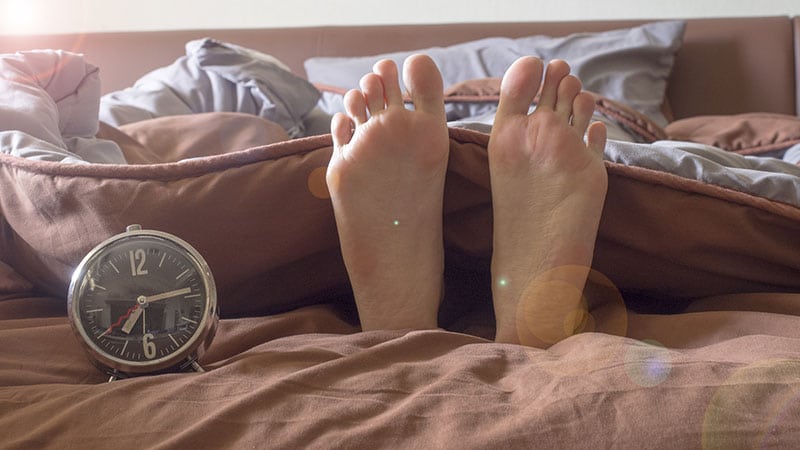 All living creatures have a circadian rhythm, from the smallest unicellular creatures to plants to even complex mammals such as humans. Our bodies have internal clocks that tell us when to be alert, when to sleep and even when to eat. These clocks are innate but also are influenced by external factors such as sunlight, temperature and when we eat. Our circadian rhythms refer to a 24-hour clock, but we also have cycles that repeat monthly, seasonally and annually.
All living creatures have a circadian rhythm, from the smallest unicellular creatures to plants to even complex mammals such as humans. Our bodies have internal clocks that tell us when to be alert, when to sleep and even when to eat. These clocks are innate but also are influenced by external factors such as sunlight, temperature and when we eat. Our circadian rhythms refer to a 24-hour clock, but we also have cycles that repeat monthly, seasonally and annually.
Why are these clocks important? Consider the event of waking. In the early morning hours, our brains switch from making melatonin, a hormone that increases sleepiness, to making the wakeful hormone cortisol instead. As the sky begins to light up, our brain begins to awaken, along with every cell in our bodies. By the time the alarm goes off or we wake naturally, our body is primed to get up and be alert.
What Happens When Your Internal Clock Is Out of Sync?
Why are our internal clocks important? Quite simply it is because our bodies cannot function effectively without them. Without these internal clocks, our bodies cannot prepare ahead of time for events such as eating and sleeping, which can cause issues with these activities. Disorders ranging from IBS to even depression have been linked to dysregulation of internal clocks in the GI tract.
In addition, our bodies depend on these internal clocks to determine when to perform important repair activities such as DNA repair. When our circadian rhythm is dysregulated, these activities may not occur on the right schedule or even may not occur at all. This leads to a higher risk of cancer and other potentially deadly diseases, which have been linked to jet lag, shift work and other disruptions of the circadian rhythm.
Advances in Chronobiology, Advances in Health
New understanding of internal clocks and the way that they affect our health and happiness have led to a new field called chronobiology. Chronobiology is the study of these internal clocks, including the clock that governs our circadian rhythm.
Much of our sleep-wake cycle is governed by an internal clock located in the suprachiasmatic nucleus (SCN) of the hypothalamus. This area of the brain collects information about light levels and other external cues, using these to modify the timing of our internal clocks. Understanding more about the genes and biochemicals involved in these can lead to new and more effective treatments for the circadian disorders. For instance, we now know that melatonin is an important part of the body’s preparation to sleep and thus that taking a melatonin supplement can help to get the circadian rhythm back on track. Other new discoveries in the field of chronobiology may mean new and innovative treatments in the future.
Modern Conflicts with Circadian Rhythm
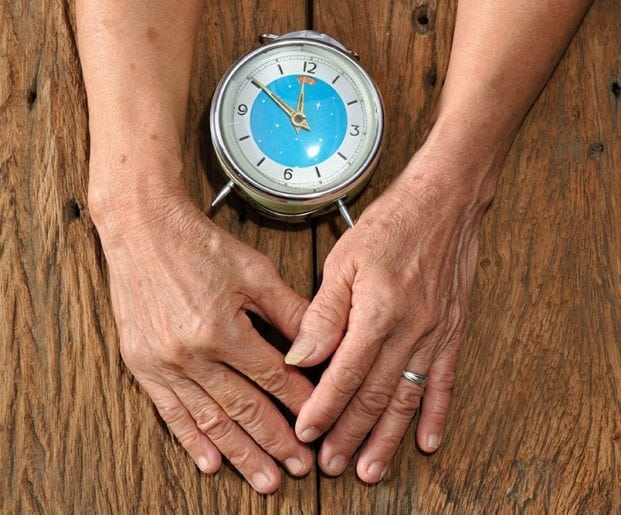 While we now understand more about the circadian rhythm than we ever have, modern life makes maintaining a stable internal clock a greater challenge than ever before. People are working increasingly erratic hours due to a planet where the business day never stops. Many people work odd shifts that keep them from waking and going to bed at a regular time. Travel for work and personal reasons has made jet lag a common affliction. Even simple things like daylight savings time can throw internal clocks off kilter.
While we now understand more about the circadian rhythm than we ever have, modern life makes maintaining a stable internal clock a greater challenge than ever before. People are working increasingly erratic hours due to a planet where the business day never stops. Many people work odd shifts that keep them from waking and going to bed at a regular time. Travel for work and personal reasons has made jet lag a common affliction. Even simple things like daylight savings time can throw internal clocks off kilter.
Light pollution is also a modern problem that interferes with the circadian rhythm. Most modern people no longer live in an area where total darkness is possible. This can interfere with melatonin production, sleeping habits and long-term health. It may even be part of the reason that we have seen a sharp increase in obesity, metabolic disorders and other chronic diseases.
Maintaining Healthy Internal Clocks
How can modern people combine new information about the circadian rhythm into their own healthy lifestyle? While there is still much to be learned, there are concrete ways that we can help to stabilize our internal clocks. Consider the following strategies:
- Maintain a stable sleep schedule with the same bedtime and waking time—even on days off.
- Expose your skin to bright natural light every day.
- Try to create the darkest possible environment at night, using blackout curtains if necessary.
- Turn off screens about an hour before you go to bed.
- Consider taking a melatonin supplement at night if you have trouble falling or staying asleep.
This Nobel Prize has brought attention to the circadian rhythm and the field of chronobiology, for good reason. Understanding the workings of the human body’s internal clocks may lead to new and innovative treatments that help people to lead a healthier lifestyle.
 Melatonin is a hormone produced by the pineal gland in the brain. While there are small amounts of melatonin found in some foods like vegetables and meat, it’s most commonly used in supplement form.
Melatonin is a hormone produced by the pineal gland in the brain. While there are small amounts of melatonin found in some foods like vegetables and meat, it’s most commonly used in supplement form. Combining sedatives may result in excessive drowsiness or loss of consciousness, but some people experience the opposite effect. Some people feel like they have taken a stimulant when alcohol is combined with melatonin. This may be due to the body reacting to alcohol by producing adrenaline.
Combining sedatives may result in excessive drowsiness or loss of consciousness, but some people experience the opposite effect. Some people feel like they have taken a stimulant when alcohol is combined with melatonin. This may be due to the body reacting to alcohol by producing adrenaline.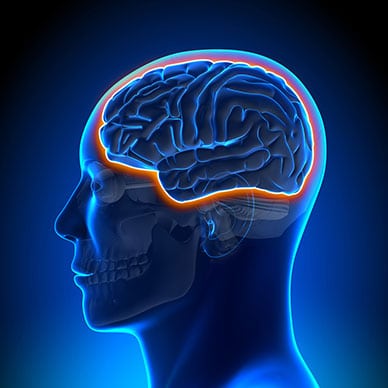
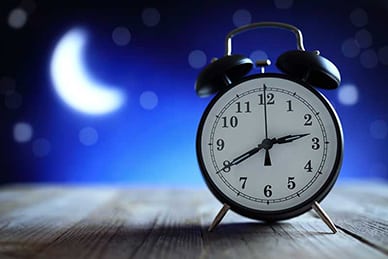 Why do modern people
Why do modern people  The heart is not the organ that can suffer when people do not get enough sleep. Having insomnia leaves people at a
The heart is not the organ that can suffer when people do not get enough sleep. Having insomnia leaves people at a 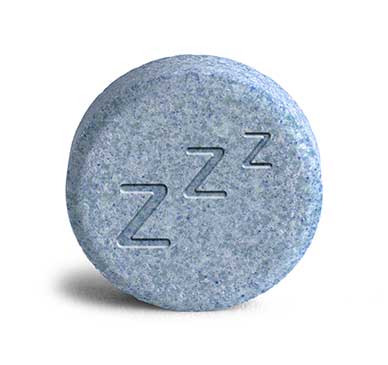 There are many downsides to the medications available on the market to help people sleep. Sleeping pills can sedate you and make it difficult to wake up in the morning or in the case of an emergency. Accidental overdose is a very real and worrisome possibility as well. This is especially true for people with respiratory diseases such as asthma. Sleeping pills can be addictive or habit-forming as well. People who use them may find that they work at first, but that the effects become smaller and smaller. People who try them often find themselves taking increasing amounts of sleep medications to get the same or even smaller effects.
There are many downsides to the medications available on the market to help people sleep. Sleeping pills can sedate you and make it difficult to wake up in the morning or in the case of an emergency. Accidental overdose is a very real and worrisome possibility as well. This is especially true for people with respiratory diseases such as asthma. Sleeping pills can be addictive or habit-forming as well. People who use them may find that they work at first, but that the effects become smaller and smaller. People who try them often find themselves taking increasing amounts of sleep medications to get the same or even smaller effects. Artificial light is ubiquitous in the modern world. Not only do light bulbs and other artificial lighting sources
Artificial light is ubiquitous in the modern world. Not only do light bulbs and other artificial lighting sources 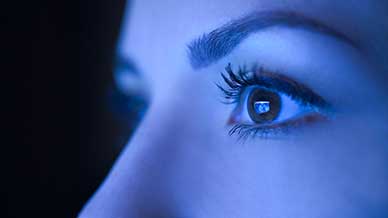 People who are exposed to high levels of blue light on a regular basis are more likely to suffer from a variety of vision problems. You have probably noticed that you suffer from eye strain after reading from a screen for an extended period of time. However, this is just the beginning. High exposure to blue light has also been found in
People who are exposed to high levels of blue light on a regular basis are more likely to suffer from a variety of vision problems. You have probably noticed that you suffer from eye strain after reading from a screen for an extended period of time. However, this is just the beginning. High exposure to blue light has also been found in